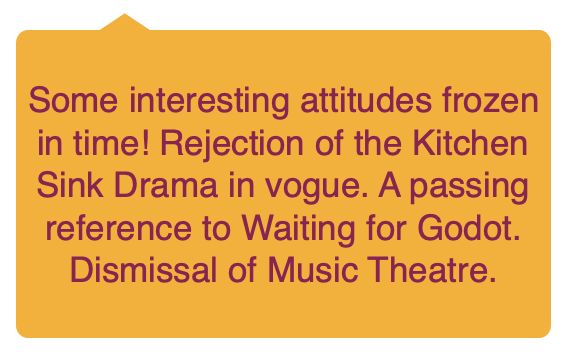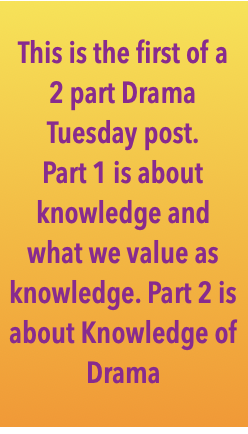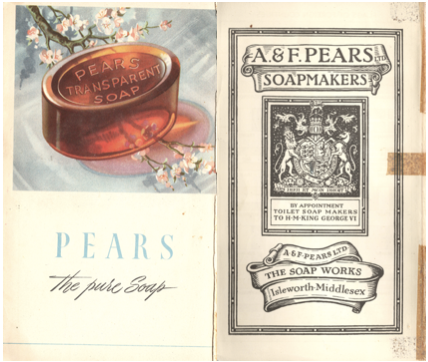Drama Tuesday - Knowledge and Learning (Part 2)
/How do you know what you know about drama?
From the 1970 Edition of the Pears Cyclopaedia, I was fascinated to read again, the Introduction to Contemporary Theatre. It presented a very English centric version “confined to plays produced before a live audience”. But I remember reading (and re-reading) page after page.
It’s interesting to wonder how many of the ideas that shaped my own drama education practice find their roots in these particular words. I do still have a bias for “live theatre” even in a world where there are multiple versions at our fingertips on streaming services.
The Cyclopaedia does present a limited vision. So much so, that it might explain my insistence upon Australian theatre and a focus on Australian theatre and playwrights that became important to the ways I developed. Why, for example, I took the first offering of Australian Literature at UWA when it became available in my last year of studies (very late in 1973 – unbelievable that it was this late in an Australian University).
As I noted, the limits of knowledge are often dependent on the sources of our knowledge. Whoever curated the section on theatre in the Pears Cyclopaedia presented one view. Obviously there are many others.
But this musing prompts to me wonder:
What are the sources of your knowledge about drama?
What limits your knowledge? And what empowers it?
What are your thoughts and responses to these extracts from the 1970 Introduction to Contemporary Theatre?
What significance can the modern audience be expected to find in such spectacles as squalid garrets and basement, characters most unrealistically bursting into song, old tramps changing hats, or a young man trying to teach a set of weighing machines to sing the Hallelujah Chorus.
These are some of the questions that trouble the playgoer, and since they are not always easy to answer it may be helpful first to consider what is the
Function of Dramatic Art.
It is not the function of art to make a statement but to induce an imaginative response. and the spectator receives not an answer to a question but an experience.
Drama., like the other arts, gives expression to that subtle and elusive life of feelIng that defies logical definition. By feeling ls to be understood the whole experience of what It feels like to be alive - physical sensations, emotions. and even what It feels like to think.
This flux of sensibility cannot be netted down in logical discourse. but can find expression In what Clive Bell, when discussing the visual arts, called " significant form.'' Susanne Longer in her book, Form and Feeling, has developed Clive Bell's concept, arguing that al artistic form is an indirect expression of feeling. The artist, be he painter, poet. or dramatist, create an image a form that gives shape to his feeling and it Is for the sensitive recipient to interpret its significance.
The especial province of drama, as was pointed out by Aristotle, Is to create an image, an illusion of action, that action " which springs from the past but is directed towards the future and is always great with things to come."
The Therapeutic Effect of Drama.
One of the achievements of serious drama is to create an image that will objectify and help to resolve deep human conflicts.
It is noteworthy also that drama. can be fully appreciated only in a public performance, a social event demanding the cooperation and understanding between author, players, and audiences.
The Constituents of Drama.
Drama Is a complex art in that It uses two very different kinds of Ingredient or material, one speech, the literary constituent. the other the gesture, movement, and confrontation of actors on an actual stage.
The Ritual Element
While speech and the confrontation of actors are essential to full drama, there is an element that has sometimes been neglected and that is ritual perhaps the most primitive and evocative of all.












